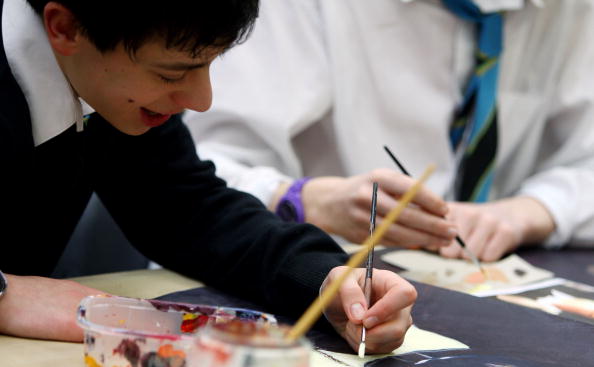Creativity is no longer valued as a skill: Why are we neglecting the arts?
‘Creativity is a unique talent that cannot be so easily taught out of a textbook’

Your support helps us to tell the story
From reproductive rights to climate change to Big Tech, The Independent is on the ground when the story is developing. Whether it's investigating the financials of Elon Musk's pro-Trump PAC or producing our latest documentary, 'The A Word', which shines a light on the American women fighting for reproductive rights, we know how important it is to parse out the facts from the messaging.
At such a critical moment in US history, we need reporters on the ground. Your donation allows us to keep sending journalists to speak to both sides of the story.
The Independent is trusted by Americans across the entire political spectrum. And unlike many other quality news outlets, we choose not to lock Americans out of our reporting and analysis with paywalls. We believe quality journalism should be available to everyone, paid for by those who can afford it.
Your support makes all the difference.Discredited by the academic brain of the intellectual, the skill of creativity seems to have lost its importance and worth in the hierarchy of ability that society has created. ‘Cleverness’ and one’s ability to memorise textbook facts and figures seems to have become a respected skill, one that directly correlates to importance and intellect.
Yet, perhaps those individuals whose skills lie in the creative arts have become neglected in comparison, perceived as ‘less skillful’, even ‘unimportant’. Why has society come to judge those seeking a creative degree as ‘wasting their time’? Why is it the creative talents of such individuals are being discredited, undervalued, and underappreciated?
More noticeably than ever, creative subjects are being labeled as ‘soft’ university subjects, a waste of time to study, and degrees that will almost certainly not lead to employment after graduation. Yet, we seem to have forgotten that, without such studies, we instantly close our minds to the sensitive and intensely human world of creativity. It has always been through the arts that we have been able to release our emotions and feelings, to find a way to express ourselves, and to, thus, release what it means to be human: our self-expression and internal thoughts.
Without the arts, we would not have the means to express our worries or fears, hopes, dreams, feelings or, ultimately, our humanity. The study of the arts is able to provide students with a chance to broaden their knowledge and opinions and, most importantly, to give them a chance to express these.
Certainly, everyone has different talents and capabilities, so I force you to ask yourself: why are we ranking such talents in a social hierarchy of human skills? Medics, and other highly intellectual science students, are respected for their academic abilities. Why is it, then, other students, who perhaps study a subject without the same scientific approach to learning, seem to be discussed as lacking a level of skill in comparison?
Creativity is a unique talent that cannot be so easily taught out of a textbook. It is infuriating how our society seems capable of praising and glorifying our child intellects, aspiring doctors and academics, yet the value of a student possessing a gift for writing, or music, or art appears demoted in comparison.
Not a believer? Take a look at the results of small survey I recently conducted. Students of different ages, backgrounds, and university departments were asked to rank ten subjects - five arts and humanities-based, the other five science-based - in order of what they thought was the most difficult to least difficult subject to study at university. Consistently, medicine, mathematics, and engineering were voted the most difficult out of all the subjects, while art and creative writing appeared last.
Then, these students were asked to rate the subjects again, now in order of what they thought the most valuable subject is to study to the least valuable. medicine, mathematics, and engineering - the same three science-based subjects - again appeared on top, storming ahead of arts and humanities that trailed at the bottom. Not only does this show a connection is being made between intelligence and value, there equally appears to be a consensus that it is science students who pose a higher level of intelligence and are, therefore, to be more valued.
Possessing creative talents is something to be respected and admired. We may not all have the ability to become doctors or mathematicians, but not all such doctors and mathematicians have the ability to be naturally creative. Hence, the way in which we think about studying the arts needs to be reassessed.
Our ability to achieve high academic grades or the type of department in which we study should not correlate to a ranking of how useful our skills are. Why? Because all talents are important. Creativity should not be undervalued. It should be admired.
Twitter: @gracie__f
Join our commenting forum
Join thought-provoking conversations, follow other Independent readers and see their replies
Comments